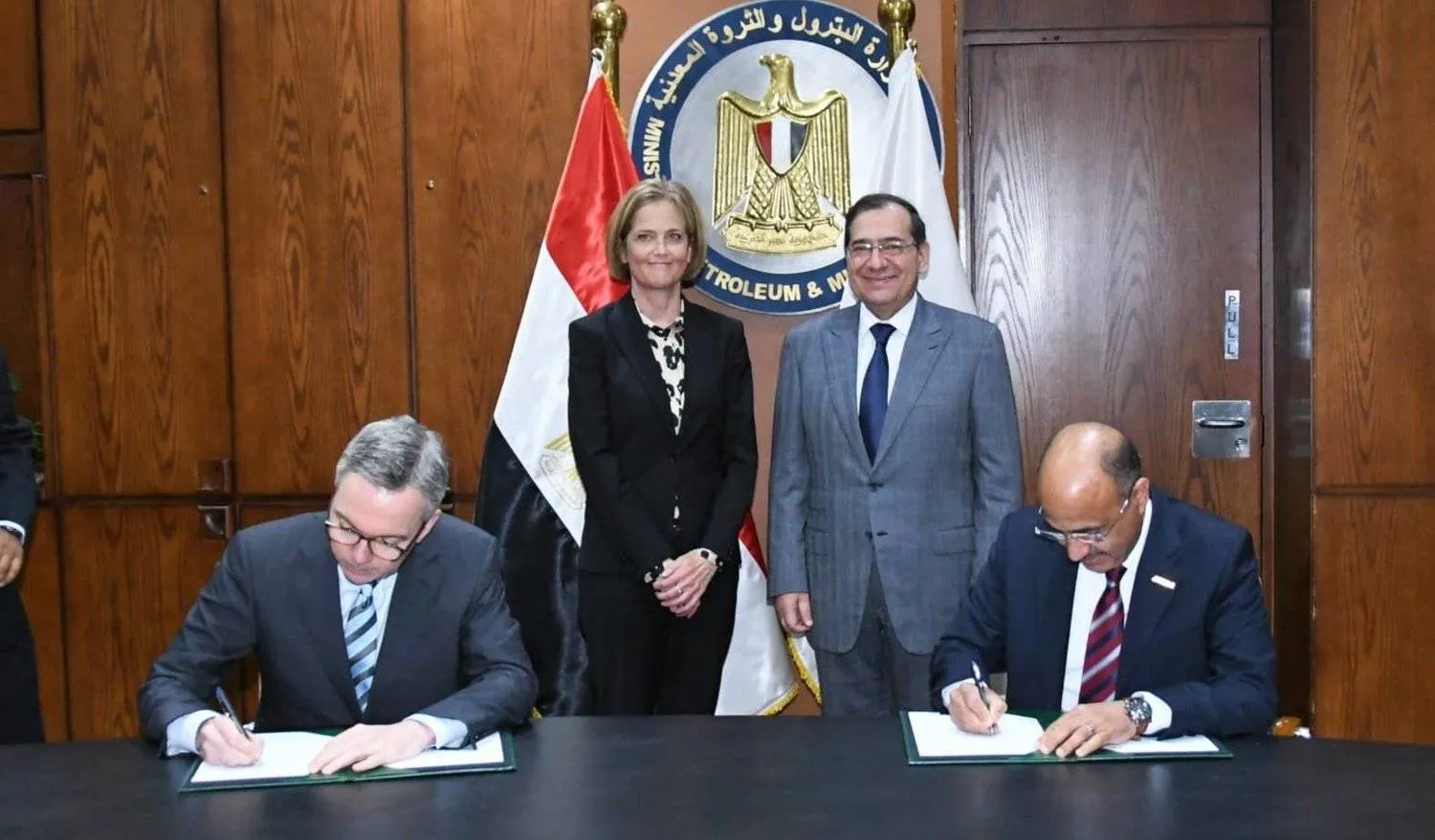Egypt and Norway signed on Sunday a joint development agreement to establish the first green methanol production project in the Middle East, with investments worth around $450 million.
In a press statement received by Asharq Al-Awsat, the Egyptian Ministry of Petroleum announced that the project will produce 40,000 tons of green methanol annually, which could be increased to 200,000 tons annually, to encourage the shift towards green production.
The agreement encourages the transition to green production, which promotes the export of green products and enhances competitiveness and presence in foreign markets by keeping pace with its requirements.
The agreement was signed between the Alexandria National Refining and Petrochemicals Company (ANRPC) and the Norwegian renewable energy solutions provider Scatec in collaboration with the Egyptian Bioethanol Company.
Minister of Petroleum and Mineral Resources Tarek El-Molla and Norwegian Ambassador to Cairo Hilde Klemetsdal attended the ceremony.
Molla said the agreement reflects the progress achieved by the petroleum sector in carrying out green energy and low-emission fuel projects in collaboration with leading global companies.
He noted that Egypt recently concluded the green ammonia project agreement to keep with pace with the continuous changes in the energy sector and the adoption of sustainable development strategies.
The project includes the construction of renewable energy stations with capacities of no less than 40 MW for solar power and 120 MW for wind power.
It also includes the construction of a 60 MW capacity green hydrogen analyzer.
As per the agreement, the project will establish a seawater desalination plant and green methanol production and storage stations and inaugurate the first station to supply ships with green biofuel.
The agreement to establish the project is the second with Scatec. Last February, the Norwegian company signed a deal with the Egyptian Petrochemicals Holding Company and Misr Fertilizers Production Company (MOPCO) to establish the green ammonia project in Damietta.
Scatec CEO Terje Pilskog described the project as a “new step” that would boost cooperation with Egypt, placing it at the top of the countries that manufacture green chemical products.
Pilskog noted that the new project transforms Egypt into a hub and a destination for supplying green fuel to global shipping lines.
Meanwhile, Chairman of the Egyptian Exchange (EGX) Rami El-Dokany announced that subscription to the first gold investment fund have started after receiving the required approvals from the Financial Regulatory Authority (FRA).
The EGX website began featuring the per-gram prices of 24-karat gold, updated regularly by Gold Net Trading.
It is developing a particular trading program for purchase and recovery orders on securities of the gold investment fund through brokerage companies registered on the market.
The EGX is required to establish a locally and internationally accredited processing plant to launch a precious metals investment fund.









